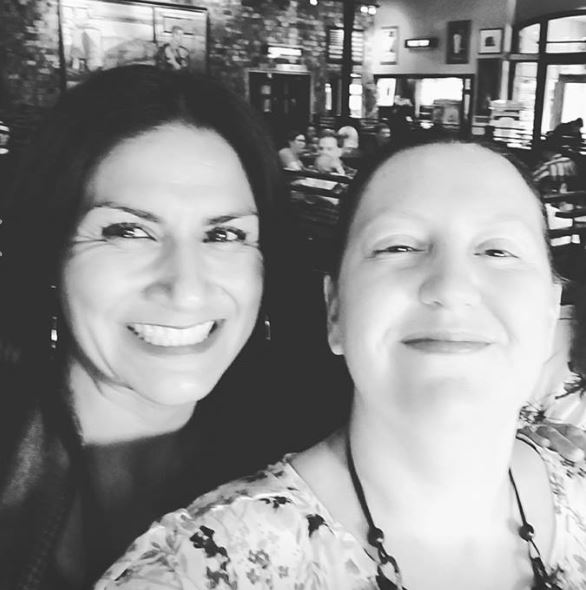Intersectional Pedagogies
This podcast focuses on intersectional pedagogies, and what the consideration of multiple socially-constructed identities and social locations bring to the learning journey. The conversation is with two leaders in the field, Profs. Kim Case and Desdamona Rios of the University of Houston at Clear Lake. Issues of privilege, power, and social justice are all made clearer in the intersections. Intersectionality is “a complex analysis of both privileged and oppressed social identities that simultaneously interact to create systemic inequities, and therefore lived experiences of prejudice and discrimination, privilege, and opportunities, and perspectives from particular social locations” (Case, Intersectional Pedagogy).
In Part 2 of the podcast Professors Case and Rios talk about student and institutional resistance and challenges, along with concrete curricular and teach suggestions for a culturally relevant pedagogy.
about the guest/s
Kim A. Case, Ph.D., is Professor of Psychology at the University of Houston-Clear Lake (UHCL) and director of the Applied Social Issues graduate degree. Prof. Case teaches courses. She has won multiple teaching and service awards. Her two co-edited books, Deconstructing Privilege: Teaching and Learning as Allies in the Classroom (Routledge, 2013) and Intersectional Pedagogy: Complicating Identity and Social Justice (Routledge, 2017), bring intersectional theories into pedagogical practices. Kim shows us the practical implications and transformative possibilities of prioritizing intersectional issues of race, class, gender, sexuality and the rest in the college classroom.
Desdamona Rios, Ph.D. is associate professor of Psychology at UHCL. She has a joint doctorate in Women’s Studies and Psychology from the University of Michigan. Her research focus is on narrative identities and promise for Latinx American high school students and LGBTQ college students. Prof. Rios has articles in both of Kim’s edited books; in Deconstructing Privilege: “Recognizing Privilege by Reducing Invisibility: The Global Feminisms Project as a Pedagogical Tool” (with Abigail J. Stewart). In Intersectional Pedagogy she has co-written two articles: “Decentering Student ‘Uniqueness’ in Lessons about Intersectionality” (with M. Bowling and J. Harris) and “Infusing Intersectionality: Complicating the Psychology of Women Course.”
I’ve invited both scholar-activists to guide us through the complicated and vital issues of intersectional theories and practices in the classroom. They discuss issues of student-centered learning environments, the importance of self care, taking risks in the classroom, the current political moment, and social action.
resources
Dr. Case’s blog has tons of resources and practical materials and is available at: www.drkimcase.com
www.facebook.com/drcasepedagogy
#myintersections:
http://www.drkimcase.com/wp-content/uploads/2017/04/myintersections-teach-sample.pdf
Books and Articles:
Carastathis, Anna. 2016. Intersectionality: An Intellectual History. University of Nebraska.
Cole, Elizabeth, Case, Kim A., Rios, Desdamona, Curtin, N. 2011. “Understanding What Students Bring to the Classroom: Moderators of the Effects of Diversity courses on Student Attitudes.” Cultural Diversity and Ethnic Minority Psychology 17/4: 397-405.
Case, Kim A., ed. 2013. Deconstructing Privilege: Teaching and Learning as Allies in the Classroom. Routledge.
Case, Kim A., ed. 2017. Intersectional Pedagogy: Complicating Identity and Social Justice. Routledge.
Cho, Sumi K., Crenshaw, K.W., and Leslie McCall. 2013. “Toward a Field of Intersectionality Studies: Theory, Applications, and Praxis. Signs: Journal of Women in Culture and Society 38/4: 785-803.
Collins, Patricia Hill and Serma Bilge. 2016. Intersectionality: Key Concepts. Polity.
Crenshaw, Kimberlé W. 1991. “Mapping the Margins: Intersectionality, Identity Politics, and Violence against Women of Color.” Stanford Law Review 43: 1241-1299.
Dill, Bonnie Thorton and R.E. Zamrana, eds. 2009. Emerging Intersections: Race, Class, and Gender in Theory, Policy, and Practice. Rutgers University Press.
Dobson, Miriam. “Intersectionality: A Fun Guide.” https://miriamdobson.com/2013/04/24/intersectionality-a-fun-guide/
Granzka, P. 2014. Intersectionality: A Foundation and Frontiers Reader. Westview.
Guidroz, K. and M.T. Berger. 2009. “A Conversation with Founding Scholars of Intersectionality: Kimberlé Crenshaw, Nira Yuval-Davis, and Michelle Fine. Pp. 61-78 in Berger and Guidroz, eds., The Intersectional Approach: Transforming the Academy through Race, Class, and Gender. University of North Carolina Press.
Hancock, Ange-Marie. 2016. Intersectionality: An Intellectual History. Oxford University Press.
May, Vivian. 2015. Pursuing Intersectionality: Unsettling Dominant Imaginaries. Routledge.
Videos:
Teaching Tolerance 101:
https://www.youtube.com/watch?v=w6dnj2IyYjE
Intersectionality and Supreme Pizza:
https://www.youtube.com/watch?v=FgK3NFvGp58


